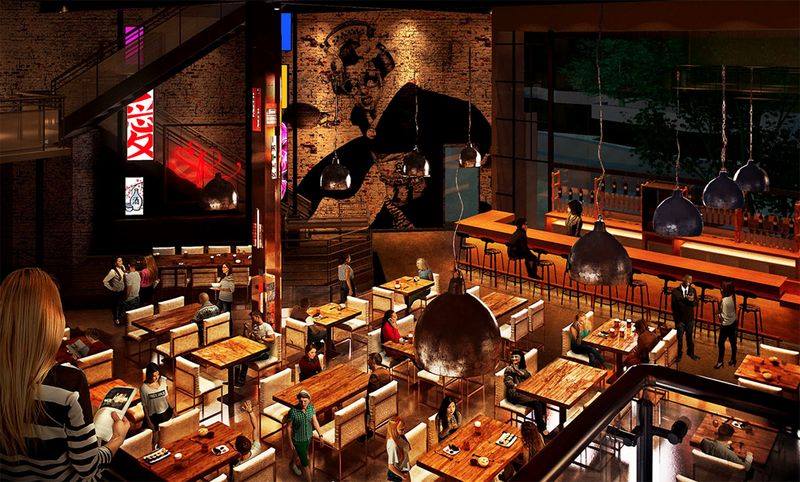A “posh” New York restaurant allegedly Googles guests and rejects the ones who aren’t rich. It’s not the only restaurant doing research on diners.
 The Manhattan restaurant Fleming by Le Bilboquet has nothing on its website except a large letter “F” above a link that says “Email us!” An email is, presumably, how one might make a reservation, find the menu, or even learn the hours of the Upper East Side spot that that’s been described as “posh” and “exclusive.” When the hostesses eventually go through the list of emailed reservation requests, the New York Post has reported, they must then “pull up each unknown guest on Google” following an internal document called “Fleming Hostess Reservation Protocol.”
The Manhattan restaurant Fleming by Le Bilboquet has nothing on its website except a large letter “F” above a link that says “Email us!” An email is, presumably, how one might make a reservation, find the menu, or even learn the hours of the Upper East Side spot that that’s been described as “posh” and “exclusive.” When the hostesses eventually go through the list of emailed reservation requests, the New York Post has reported, they must then “pull up each unknown guest on Google” following an internal document called “Fleming Hostess Reservation Protocol.”
That’s a purposeful play to “keep the restaurant for special people only,” an anonymous server at Fleming allegedly told the Post, with a “certain environment” for its rich clientele; per the report, anyone who isn’t rich doesn’t hear back. A representative for Fleming called the claims of class-based exclusion “absolutely not true,” but admitted that the restaurant does do some online snooping.
But you know what? High-end restaurants everywhere have been doing the same for years. The argument is that data collection can create a more customized experience; at best, the results of that Google search are fairly innocuous, translating to thoughtful touches. Staff at Elizabeth in Chicago once mentioned Googling customers mid-meal to make unhappy customers a little happier, and as a managing partner at Danny Meyer’s Union Square Hospitality Group told the New York Times in 2012, “Data just gives us an opportunity to understand someone better.”
The most extreme version of the Google search’s benefits might be Eleven Madison Park. Grub Street’s dive into a day at the restaurant mentioned a daily Google of every single guest. Known for its over-the-top hospitality, the restaurant took it a step further by figuring out minutiae like which anniversary guests were celebrating. (The restaurant is also known for its “Dreamweaver,” a staff member whose job is “special projects and requests from guests,” like the gifts of custom cat paintings presented to Vogue’s Grace Coddington or a toy bear made from a kitchen towel for a child.) Despite those personal touches, as of 2015, more people found the practice of Googling “creepy” than a “good thing,” according to a survey by restaurant booking site Open Table.
The worst outcome of this practice, of course, are the allegations against Fleming: that anyone could get turned down for not fitting the tenuous criteria of a restaurant’s vibe. (VICE has reached out to Fleming for comment, but has not yet received a response.) It’s easy to imagine how crafting an “environment” by way of Google-guided guest selection could quickly veer in the direction of every “-ism” possible, especially in an age when everyone puts all their thoughts on Twitter and all their photos on Instagram. While it’s not clear how often the practice of turning people down after an internet search actually is, it makes sense that in an age of constant data collection, there’s increased potential for discrimination.
As far as modern data-tracking goes, however, things could be weirder and more invasive. Google is open to everyone, but consider, for example, the new bar that’s using facial recognition to collect infomation about its customers. Perhaps, like the Shins warned way back in 2001, caring is creepy.








